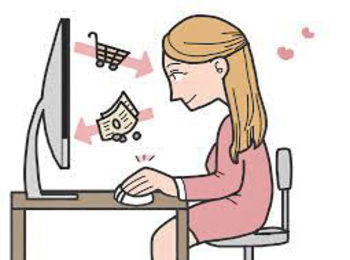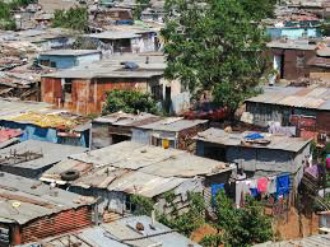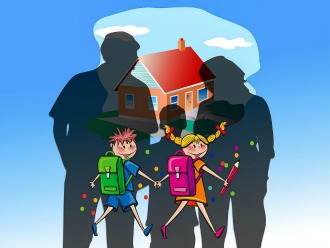The skin is the largest organ in the body. It is also the first barrier to microorganisms that cause infection. Any break or tear in the skin can introduce bacteria inside the body that may or may not always lead to sickness. Aside from that crucial function of being the body’s first-line of defense, the skin serves an aesthetic purpose too. After all, we see with our eyes and you can easily pass judgment on another person based on what you see on the outside. While beauty may be subjective and is in the eyes of beholder, a healthy-looking and supple skin is hard to achieve in a largely polluted world.
 As the weather heats up and summer is fast approaching, people wear less items of clothing to beat the heat. As a result, you end up baring more skin than you are used too. You may have no care in the world about what your skin looked like when it’s all cold outside and you are wrapped from head to toe but it is a different story during summer time when wearing less is more. The question now is this, is your skin ready to welcome the summer season or does it need more pampering than what you are currently giving it now?
As the weather heats up and summer is fast approaching, people wear less items of clothing to beat the heat. As a result, you end up baring more skin than you are used too. You may have no care in the world about what your skin looked like when it’s all cold outside and you are wrapped from head to toe but it is a different story during summer time when wearing less is more. The question now is this, is your skin ready to welcome the summer season or does it need more pampering than what you are currently giving it now?
Choose the right sun protection
Whenever possible, use hats, sunglasses and light-weight clothing to keep skin covered and out of direct sunlight and its UV rays. Always use sunscreen that is water resistant, broad-spectrum, and has an SPF rating of 15 or higher. When it comes to choosing which sunscreen to apply, it’s recommended to find one that you like and are comfortable applying –- because it’s more likely you will use it regularly. Then simply make it a habit to apply daily.
All hail the sun for all its glory but too much of a good thing can also be bad for you. The sun may be a valuable resource on earth but overexposure to it, especially the midday sun, is harmful to your skin. Aside from hastening aging and leave you looking sunburnt, it also increases your risk of developing melasma and skin cancer.
Heal and repair
If sunburn does occur, a few proper steps can help alleviate the discomfort and promote healing. The skin needs to breathe and release the trapped heat. Take a cool milk bath or apply cold, plain yogurt topically, rinsing off after it dries. Aloe vera products can also soothe inflamed skin, along with damp, cool cloths. Staying hydrated is also important to prevent sun-related headaches and anti-inflammatories, like ibuprofen, can help with the pain and discomfort from red and swollen skin. See a doctor if there is blistering, a fever, chills, or a confused mental state.
You may have felt all warm and cozy in your woolen sweater and coat, gloves and scarf but you have no choice but to expose more skin during summer if you don’t want to faint from all the heat and humidity around you. In case you do suffer from sunburn during your day out in the beach, make sure you know how to heal and soothe your burning skin, so you no longer have to suffer in silence.
For a lot of us, the official start of summer is looming.
And as expected, our skin will be adjusting with the times. We've waxed poetic time and time again about the importance of year-round sun protection, but make no mistake: your summer skin care routine doesn't start and end with SPF.
From the foods you eat to the temperature of your shower water and the way you cleanse, there are a host of bad habits to rid yourself of before the hottest season arrives. Dove dermatologist, Dr. Mona Gohara, helped us get down to the nitty gritty of each one, so keep reading for the pro-tips you can actually trust.
Aside from knowing the usual skin care tips, it helps to be privy on things you should avoid doing if you want clear, bright, and healthy skin all summer long.
Hot Showers
Even in the middle of a sticky and hot day, nothing feels better than the steam from a hot shower. Unfortunately, that simple pleasure is also a killjoy for healthy skin.
According to Dr. Gohara, "Taking a hot shower compromises the skin barrier as. Keep it lukewarm to avoid overly irritating or drying the skin." She also advises against soaps that tend to strip the skin of natural oil.
(Via: http://www.essence.com/beauty/skin/summer-skin-care-tips)
You’ll be surprised to find out that many of your habits are actually doing your skin more harm than good regardless how good they felt. Your skin needs all the loving it can get, so don’t forget to wear some sunscreen before leaving the house. You can’t stop the season from changing. And with climate change and global warming that is now our reality and no longer just a threat, the risk of developing skin diseases is high if you constantly expose yourself under the scorching heat of the summer sun. You can still enjoy summer without subjecting your skin to all sorts of torture if you know what to do and what not.
The following blog post Is Your Skin Ready For Summer? See more on: https://www.nakedconversations.com
from
https://www.nakedconversations.com/is-your-skin-ready-for-summer/






